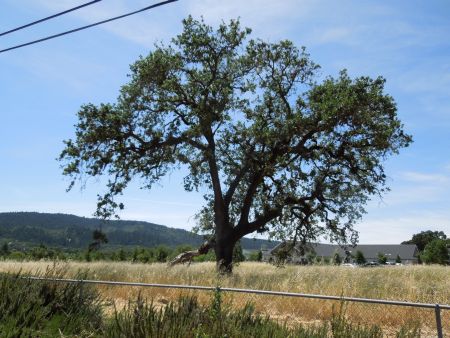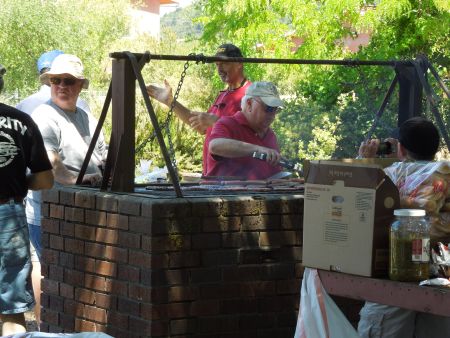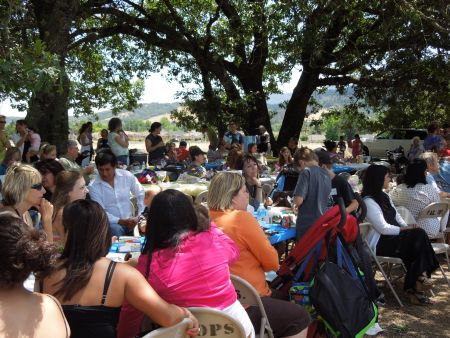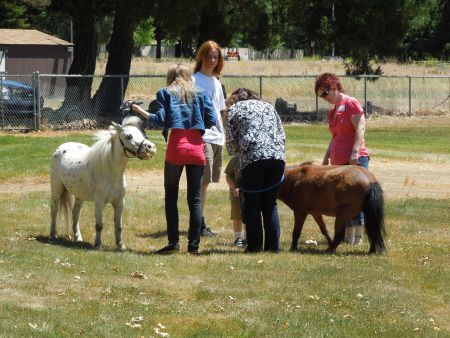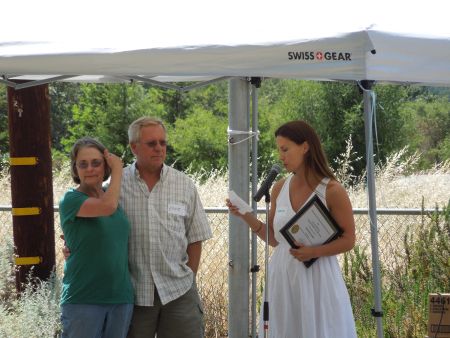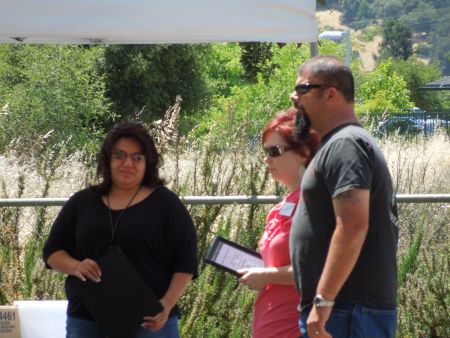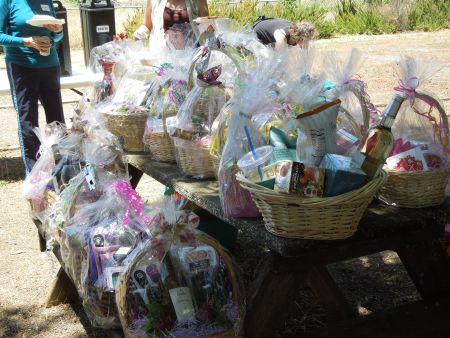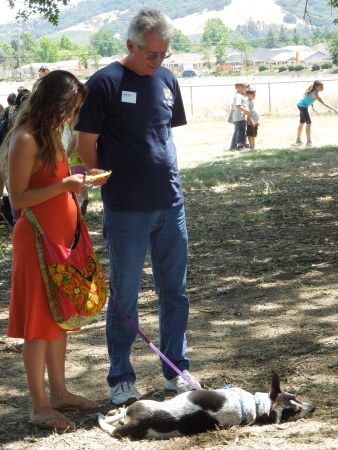Saturday, June 2, I went to the county’s annual Foster Parent Appreciation Picnic. It’s held out in the countryside, in a grove of heritage oak trees with a built in barbecue. I didn’t know what turnout to expect, but it was great! Lots of foster parents, social workers, and children, over 100, I think.
One of the local Kiwanis groups donated hamburgers, hot dogs and veggie burgers and did the grilling for the lunch. Side dishes included a huge, luscious fruit salad, green salad, potato salad, and chili. The tables were decorated with flowering plants. Kids could play softball, or go over to an adjacent building to see the magician or get funny photos taken.
Pam, who works for the Central Valley Healthcare Coalition as a program manager, works with a lot of initiatives to improve children’s nutrition. She is also a chaplain, and part of the Kawanis group. She was assisting with the day’s cooking.
California has about 60,000 children in foster care; Sonoma County has about 1% of those. Nationally, in 2009, 408,000 children were in foster placement. “Placement” includes foster parents and the more expensive, more structured group homes. Why do kids have to stay in foster care? Why aren’t they just adopted? Well, in 2009, nationally, 57,000 were, according to the Brookings Institute. That’s about 14%. Many children get to go home to families who have changed their behavior and can keep their children safe. Some children come into care school aged or older, not attractive adoptive candidates for people who want a cute baby. And some of these children have special physical, medical or psychological needs.
Foster parents, as a group, are frequently maligned in fiction, especially television and movies. Most of this is the same laziness that creates dumb doughnut-eating cop characters and cold, officious nurse characters. Writers who don’t know much about the child welfare system (and don’t care to find out) think it’s very easy to give a character a terrible back-story by showing them in nasty foster homes with caretakers who are either abusive or “just in it for the money.” The big bucks these folks are getting, in California, is somewhere between $446 and $627/month to raise a child. California pays an out-of-work carpenter more in unemployment benefits than it pays someone to give a wounded child a safe home.
Foster parents do get an annual clothing allowance of around $200 for each child. Some foster parents, who have special training or have taken additional classes, qualify for a higher payment because they open their homes to children with special needs.
(You might be thinking, “Well, weren’t there any kids at this picnic? They aren’t in the pictures.” There were plenty, and lots of nice pictures I couldn’t use because they showed children. Foster children have the right to privacy, so I’ve tried very hard here to only use the photos that don’t let people identify the kids.)
On Saturday, the foster parents gave appreciation awards to some social workers, and the social workers gave appreciation awards to outstanding foster parents. One couple stood out for me because they care for medically fragile infants; babies who might require medical procedures every two of three hours, or who have suffered brain trauma or head injuries.
What do foster parents think makes a good social worker? Certain words came up repeatedly. “Professional and respectful” came up more than once, but the one constant seemed to be, “returns phone calls.” Generally, it seems that what foster parents want more than “just the money” is support; someone to talk to when the eight-year-old is having a meltdown because her parents were a no-show for the visit; when the thirteen year old is acting out; when the baby’s medication is no longer covered by Medi-Cal and the cost is $1100/month.
Support doesn’t always have to be a paid professional. The Redwood Empire Foster Parents Association provides formal and informal networking. Nobody can walk a foster parent through a meltdown better than another foster parent who has experienced dozens of them.
The social workers gave an appreciation award to this couple, because nobody is better than they are at interacting with troubled teen-aged girls. In my social service career I’ve interviewed people just released from jail, the mentally ill, and biker families, and teen-age girls scare me. I think these foster parents are probably superhuman.
The woman standing next to me, who had a three-year-old and a baby placed with her, summed up foster parenting this way; “You love them and you let them go.” That’s a lot like parenting – except “let them go” can happen at any time.
Foster parents who got awards also had their choice of elaborate gift baskets!
They had miniature horses for the kids to pet. The white spotted horse is named Aurora; the chestnut with the attitude is Mr. Mister.
There were several very mellow dogs who attended the picnic. This is Umi, hanging out with Chloe, a social worker.
The event was very pleasant. For everything foster parents do for these children, the least we can do once year is give them a hamburger and say “Thanks.”

